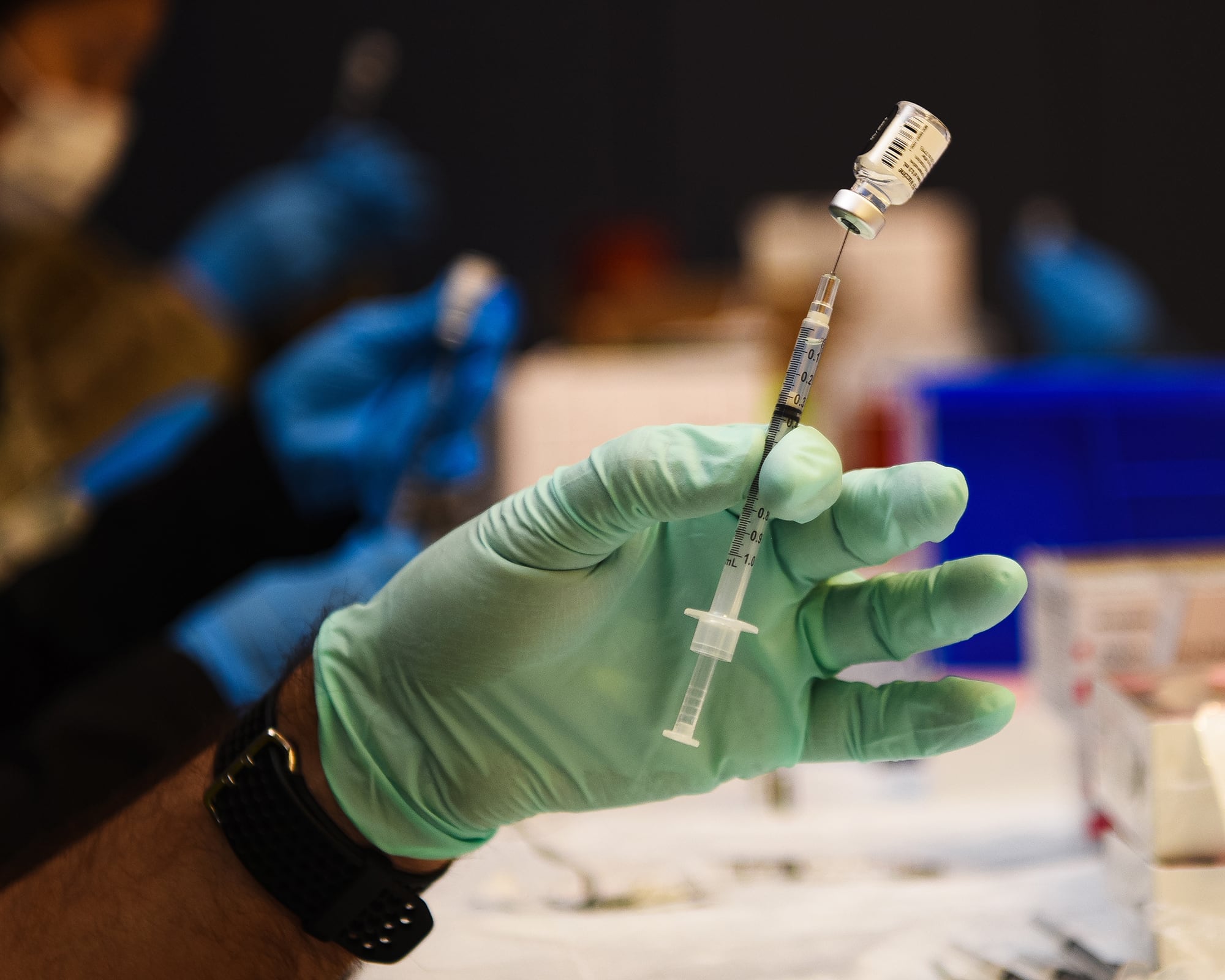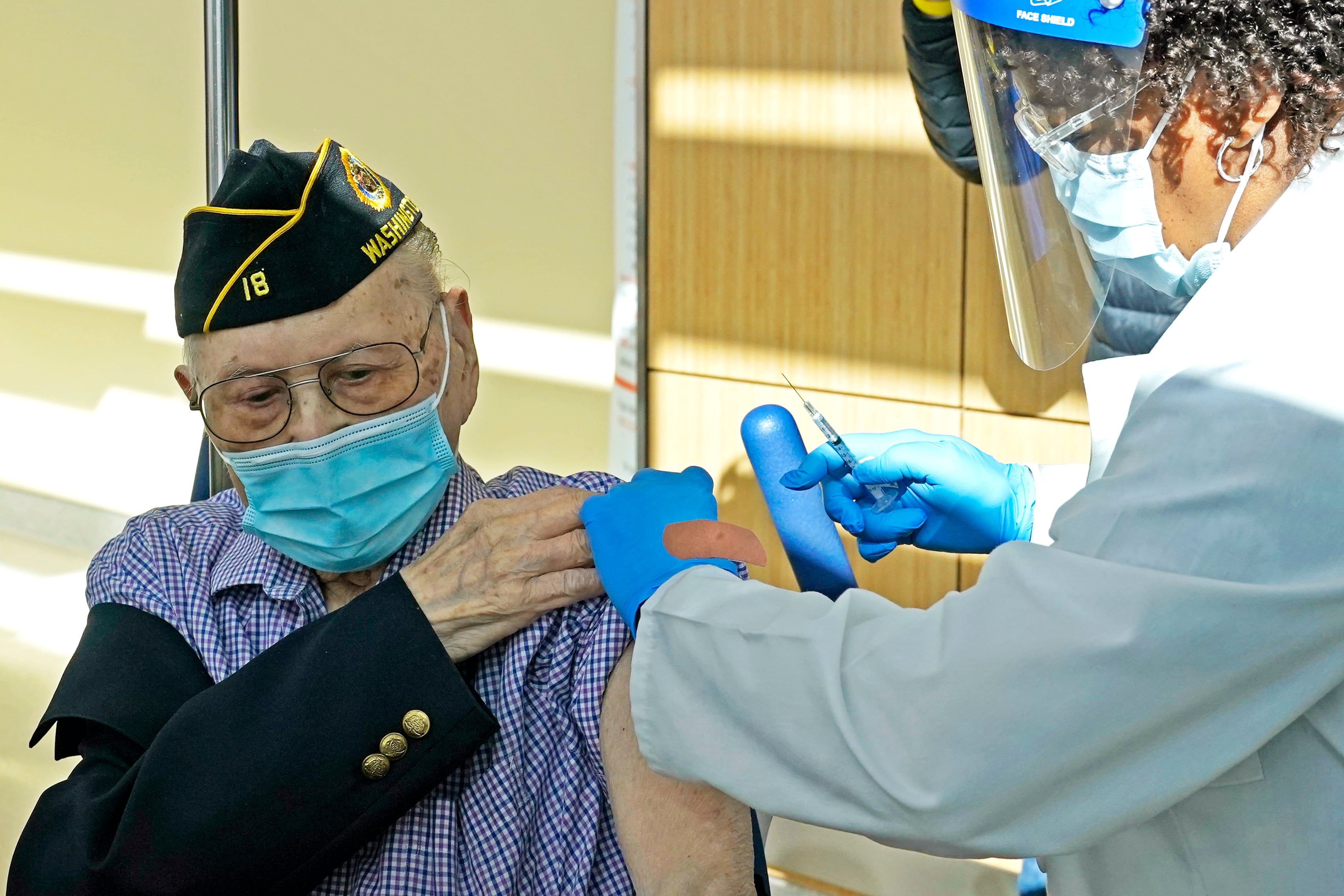When Congress passed legislation last month to expand COVID vaccine distribution to all veterans and caregivers, Marine Corps veteran Wayne Beverly hoped he’d be able to get an appointment through his local U.S. embassy.
Instead, the expatriate living in Thailand has been frustrated to find out that enrollees in the Department of Veterans Affairs Foreign Medical Program are still on their own to find doses.
“There are many veterans here,” said Beverly, 75, who has a 100-percent disability rating due to injuries sustained during the Vietnam war. “I am a member of the local VFW, and there are chapters all over Thailand. But I have heard nothing from anyone about being able to receive a vaccine.
“It feels like we’re getting screwed over by our government and the VA once again.”
RELATED

Under provisions in the SAVE LIVES Act signed into law March 24, VA officials were given authority to administer vaccines to all American veterans, their spouses and caregivers in an effort to speed up distribution of the doses.
The legislation included “overseas veterans who rely on the Foreign Medical Program.” About 55,500 veterans are currently registered in that overseas medical assistance program, though VA officials have noted fewer than 5,000 were active users of the program in fiscal 2020.
But the program is typically a reimbursement program where veterans can receive payments for health appointments or medication after they arrange that care on their own.
In a statement, VA officials said that they will “pay or reimburse claims for vaccines that veterans receive from their local providers,” but not provide any direct doses to overseas veterans through American embassies or other U.S. facilities.
The one exception is in the Philippines, where VA staff is providing vaccines directly at the Community-Based Outpatient Clinic in Manila.
Expanding that to more foreign country locations would present significant logistical challenges for the department, which has coordinated closely with federal partners to distribute tens of thousands of vaccine doses each week at established stateside sites.
But the lack of a direct path to a vaccine presents significant challenges for overseas veterans, as many foreign governments have struggled to obtain and distribute the doses. Beverly said getting a dose in Thailand right now “is next to impossible” for most residents.
He had hoped the U.S. government would find a way to make some supply available.
“But our embassy has said ‘you are on your own, good luck,’” he said. “What are we, third-class citizens? I don’t remember giving up my citizenship when I moved 11 years ago.”
In a statement, a State Department official said that the agency “does not provide direct medical care to private U.S. citizens abroad. We are committed to providing all possible consular assistance to U.S. citizens in need overseas, including by providing information on local medical resources when appropriate.”
On April 26, amid increasing criticism and desperation from the international community, White House officials announced they will share up to 60 million doses of the excess vaccine doses with other countries in coming weeks.
Earlier this month, Defense Department officials announced they would prioritize overseas deployed personnel and their families for vaccine doses “because of limited availability to receive vaccinations from local health care providers.”
RELATED

But overseas veterans have not received the same priority. Restrictions on vaccine imports and exports remain in place across the globe, and getting shots into individuals’ arms is still largely controlled by foreign governments, even for U.S. citizens.
More than 150 million individuals worldwide have contracted COVID-19 over the last 18 months, and more than 3 million have died from complications related to the virus. The virus has been particularly deadly among elderly individuals, a group that includes many of the overseas U.S. veterans.
Beverly said he is still searching for a local hospital for a vaccine appointment, but he isn’t optimistic.
“They put (outsiders) at the back of the line for sure,” he said. “When Americans are left out, the only hope us veterans have is the VA.”
Leo covers Congress, Veterans Affairs and the White House for Military Times. He has covered Washington, D.C. since 2004, focusing on military personnel and veterans policies. His work has earned numerous honors, including a 2009 Polk award, a 2010 National Headliner Award, the IAVA Leadership in Journalism award and the VFW News Media award.









